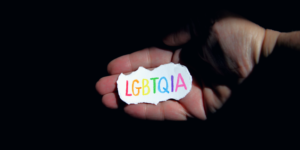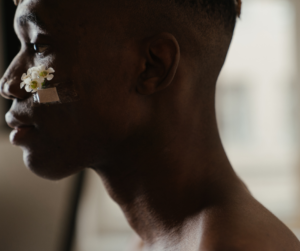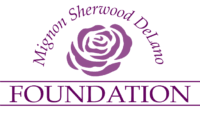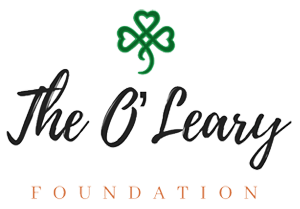- Heather Forrest
- Jun, 09, 2021
- Blog
- Comments Off on The Prevalence of LGBTQ+ Domestic Abuse
Members of the LGBTQ+ community are experiencing disproportionate rates of domestic abuse, including intimate partner violence and sexual violence. Yet, when we think of domestic abuse, it would be unusual for an image of a same-sex couple to come to mind. Moreover, LGBTQ people experience unique hurdles and traumas which make it more difficult to find support when experiencing domestic abuse.
 Despite the lack of awareness and scientific research into this subject matter, the studies that do exist show resounding evidence of domestic abuse for members of the LGBTQ community. Several studies have shown that lesbian or gay individuals report domestic violence at rates equal to or higher than people are heterosexual.
Despite the lack of awareness and scientific research into this subject matter, the studies that do exist show resounding evidence of domestic abuse for members of the LGBTQ community. Several studies have shown that lesbian or gay individuals report domestic violence at rates equal to or higher than people are heterosexual.
Bisexual men and women are at heightened risk, showing that bisexual women report more instances of rape, stalking, and/or physical violence than lesbian or heterosexual women. For bisexual men, the same is true: they report a higher prevalence of rape, physical violence, and/or stalking compared to their heterosexual or gay counterparts. An especially alarming situation is that of transgender people, who experience an immensely heightened risk for violence.
In-depth statistics are listed below:
- 44% of lesbian women and 61% of bisexual women experience rape, physical violence, and/or stalking from a partner in their lifetime, compared to 35% of heterosexual women
- 26% of gay men and 37% of bisexual men, and 29% of heterosexual men experience rape, physical violence, and/or stalking from a partner in their lifetime
- About 1 in 5 (about 22%) bisexual women versus 1 in 10 (about 9%) heterosexual women have been raped by a partner in their lifetime
- In one survey, 54% of trans respondents experienced some form of intimate partner violence, 47% of trans respondents were sexually assaulted within their lifetime, and 10% were sexually assaulted within the last year
 If domestic abuse among the LGBTQ community is this disproportionate, then why is it not addressed nearly as much as heterosexual domestic abuse? First, it is important to recognize that the experience of domestic abuse for sexual minorities is unique and often much different from what occurs in heterosexual intimate partner abuse.
If domestic abuse among the LGBTQ community is this disproportionate, then why is it not addressed nearly as much as heterosexual domestic abuse? First, it is important to recognize that the experience of domestic abuse for sexual minorities is unique and often much different from what occurs in heterosexual intimate partner abuse.
LGBTQ victims of domestic abuse can face various tactics of abuse, many psychological. Abusers may threaten to “out” or expose their partner’s sexual orientation or gender. Not only is the experience of domestic abuse unique for LBGTQ victims, but the resources, awareness, and support systems to help them escape their situation are scarce. Therefore, another reason domestic abuse is not addressed is due to various barriers that prevent victims from seeking help or coming forward.
 Sexual minorities may experience isolation from their families or childhood communities, making it more difficult to seek familial support or temporary housing when escaping domestic abuse. There is also a danger of “outing” oneself if a victim were to come forward and their families realize their sexuality. Due to all the potential obstacles that LGBTQ domestic abuse victims may face when seeking help, nearly 45% of victims never report the violence to the police. More potential obstacles for sexual minority victims include:
Sexual minorities may experience isolation from their families or childhood communities, making it more difficult to seek familial support or temporary housing when escaping domestic abuse. There is also a danger of “outing” oneself if a victim were to come forward and their families realize their sexuality. Due to all the potential obstacles that LGBTQ domestic abuse victims may face when seeking help, nearly 45% of victims never report the violence to the police. More potential obstacles for sexual minority victims include:
- Societal belief that same-sex relationships cannot experience domestic abuse
- Insensitivity from non-LGBTQ staff members or service providers
- Lack of appropriate training and awareness on the subject
- A fear that opening up about LGBTQ domestic violence will contribute to stigmas around the community
- Lack of LGBTQ friendly resources
It is crucial that through raising awareness, conducting further research, building more supportive communities, and increasing resources, we all contribute to reducing the difficulties of escaping domestic abuse for members of the LGBTQ community. If you or someone you know might be experiencing domestic abuse within an LGBTQ+ relationship, please see below for resources.
Resources
- National Domestic Violence Hotline: 800.799.SAFE (7233).
- Read this guide to learn more about legal rights as an LGBTQ victim of domestic violence.
- See a list of organizations involved in relieving domestic abuse in LGBTQ communities here.
- Visit the LGBT National Help Center for various hotlines, peer support, and local resources.
- More information and resources have been compiled by the Human Rights Campaign.
Sources:
https://vawnet.org/sc/rates-and-prevalence-dv-lgbtq-communities
https://williamsinstitute.law.ucla.edu/publications/ipv-sex-abuse-lgbt-people/
https://ncadv.org/blog/posts/domestic-violence-and-the-lgbtq-community
Sylvia’s Blog
- Wine Tasting 2025 May 19, 2025
- Comorbid Dangers: Financial Abuse November 4, 2024
- Comorbid Dangers: Domestic Violence & Animal Abuse September 16, 2024





